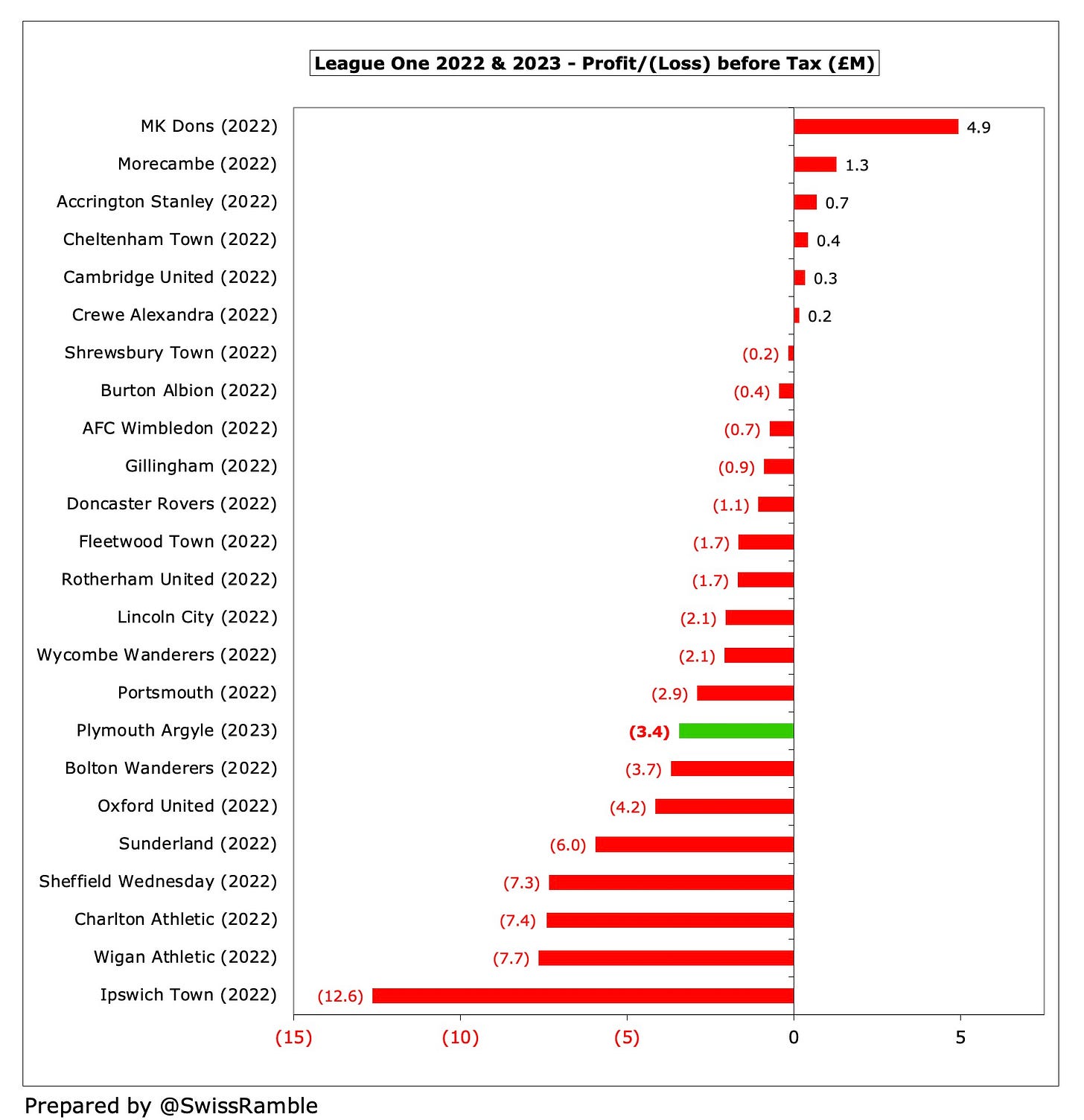Plymouth Argyle’s 2022/23 financial results cover a season which saw “incredible success on the pitch”, as the club won the EFL League One title under Steven Schumacher, thus securing a return to the Championship for the first time since 2010. This was a fantastic achievement, as the club managed to finish ahead of far better resourced clubs, such as Ipswich Town and Sheffield Wednesday.
With some justification, Argyle chairman Simon Hallett said, “It was a truly memorable year which (also) saw us reach the Papa John’s Trophy final at Wembley”. He added, “This is the culmination of a strategy set out in 2019.”
Strategy
The board had put together a new mission in December 2019 of being a financially sustainable Championship club within five years – which Argyle have now achieved ahead of schedule.
Head of Finance, David Ray, explained what they meant by financially sustainable: “Put simply, we will generate sufficient income to cover our costs and therefore will not be reliant on our owner to inject money into the business to cover any losses. This is of crucial importance for the long-term financial security of the club.”
Hallett recently reiterated this stance, “Financial strength and the word sustainable are something Argyle fans will have heard me mention multiple times. Our beliefs will never sway from this principle as it is vitally important the club moves forward in a way that is financially viable.”
History
Argyle’s focus on sustainability makes a lot of sense if you know the history, as the club went into administration in 2011, when the club was deducted 10 points, leading to relegation to League Two, where they only just avoided dropping out of the football league. Famously, manager Peter Reid sold his FA Cup runners-up medal to help raise funds to pay some of the bills.
James Brent bought the club, took it out of administration and steadied the ship, before stepping aside in 2018, allowing Hallett to become first the majority shareholder and then take on the role of chairman.
Recovery
Hallett’s arrival was not enough to prevent Argyle from another relegation to the fourth tier, but the club has made excellent progress since then. Argyle bounced back at the first attempt and have steadily improved since then, leading to last season’s triumphant promotion.
So let’s review the latest accounts to see how close the club has got to its dream of financial sustainability.
Profit/(Loss) 2022/23
Hallett said, “Performances on the pitch were backed up by significant progress off the pitch, as our club continued to expand its revenue base, in the first full year back to normal following the COVID-19 pandemic.”
In this way, Argyle’s revenue rose £3.4m (30%) from £11.3m to £14.7m, the highest the club has ever achieved. However, profit on player sales dropped from £0.4m to £0.3m, while operating expenses shot up £6.6m (55%) from £12.0m to £18.6m.
As a result, Argyle’s pre-tax loss widened from £0.3m to £3.4m, though this could justifiably be described as “the price of success”, as it was largely due to once-off costs triggered by promotion.
These included contingent payments on player loan transfers, performance bonuses to first team players and management, along with a legacy payment to a bank in accordance with an agreement entered into when the club exited administration.
The main driver of Argyle’s revenue growth was commercial, which significantly increased by £2.7m (61%) from £4.4m to £7.1m, another club record. Match day also rose £0.7m (16%) from £3.9m to £4.6m, while broadcasting was slightly higher at £3.0m.
However, Argyle’s higher revenue was more than offset by growth in costs, including the once-off promotion expenses. Wages rose £3.1m (52%) from £6.0m to £9.1m, while other expenses surged £2.7m (54%) from £5.0m to £7.7m.
There were also small increases in player amortisation and depreciation to £0.2m and £0.9m respectively, while goodwill amortisation was up £0.5m to £0.7m.
Argyle are the fastest out of the blocks in League One when it comes to publishing accounts for the 2022/23 season, so all the comparatives for other clubs are from 2021/22.
On that basis, their £3.4m pre-tax loss is in the bottom half of the table, but significantly smaller than the other two promoted clubs, Ipswich Town £12.6m and Sheffield Wednesday £7.3m, whose losses last season are likely to be even higher once they also include promotion bonuses.
Only five clubs were profitable with just two of them making more than a million, namely MK Dons £4.9m and Morecambe £1.3m.
Player Sales 2022/23
Argyle’s profit from player sales slightly decreased from £0.4m to £0.3m, mainly from the transfer of Panutche Camara to Ipswich Town. The previous season mostly represented compensation received following the departure of former manager Ryan Lowe to Preston North End plus one of the club’s Academy prospects.
Keep reading with a 7-day free trial
Subscribe to The Swiss Ramble to keep reading this post and get 7 days of free access to the full post archives.








